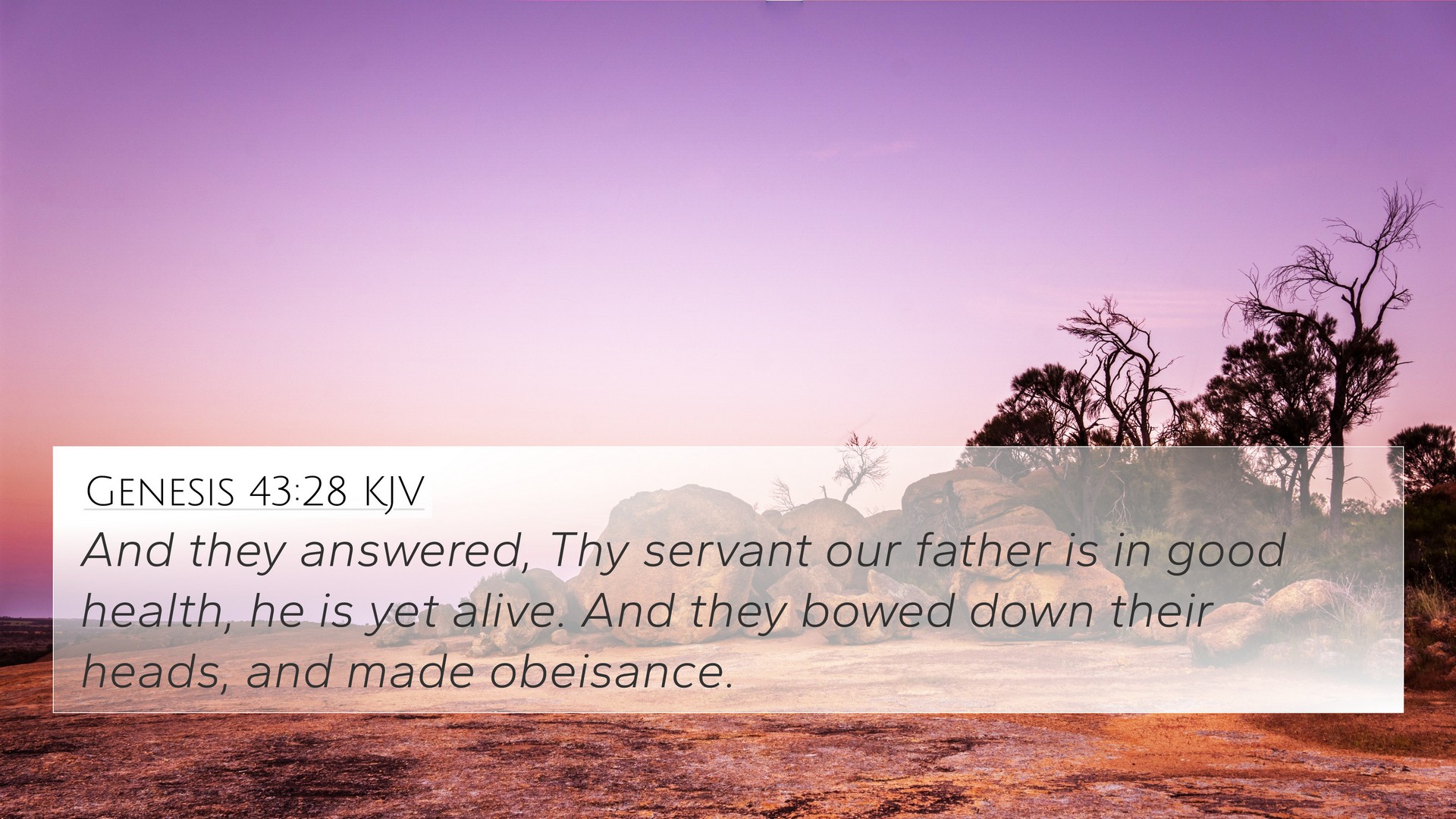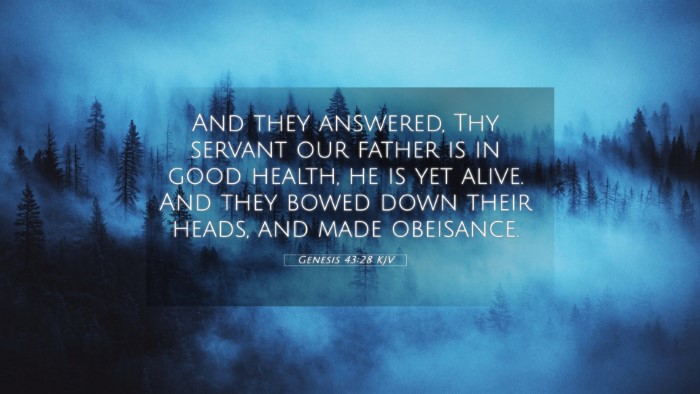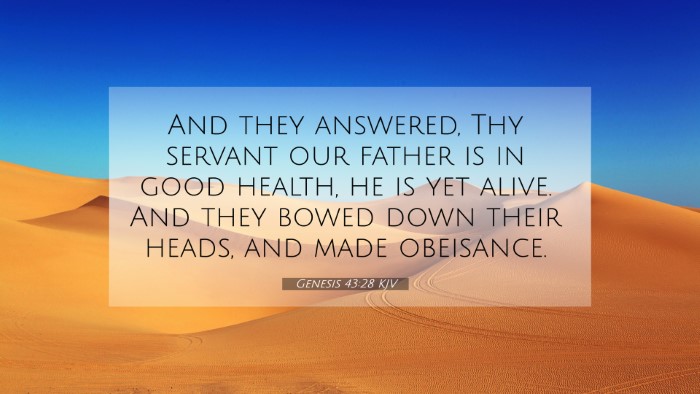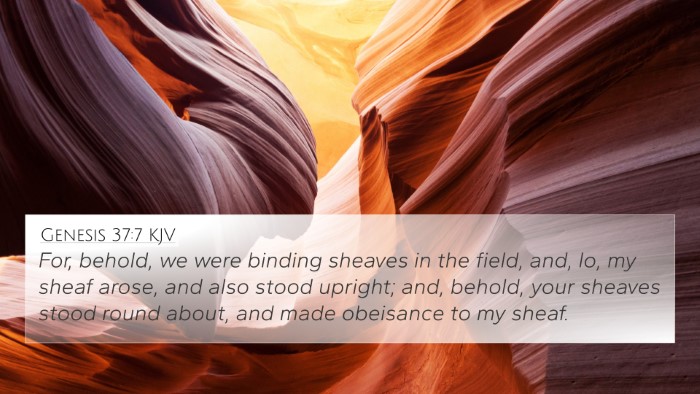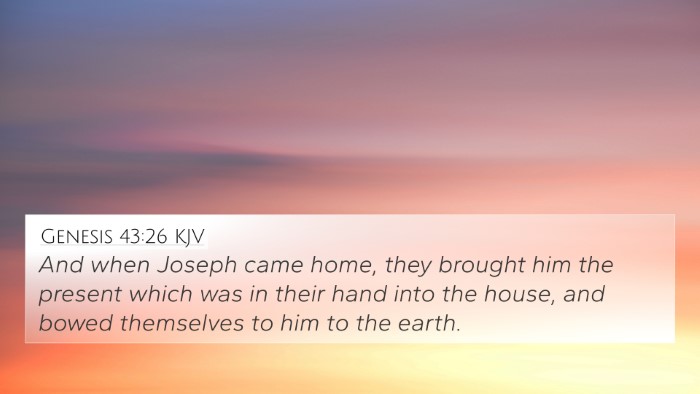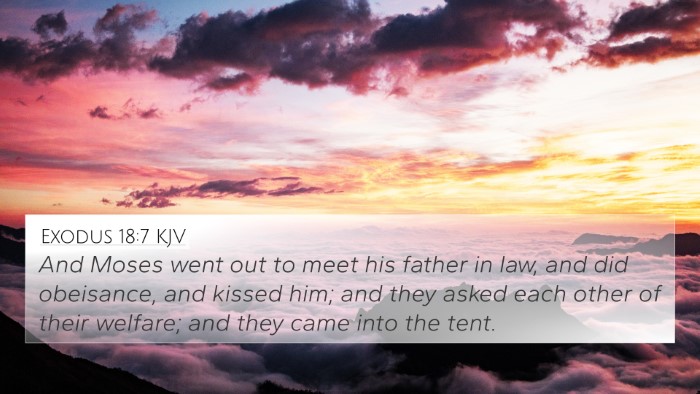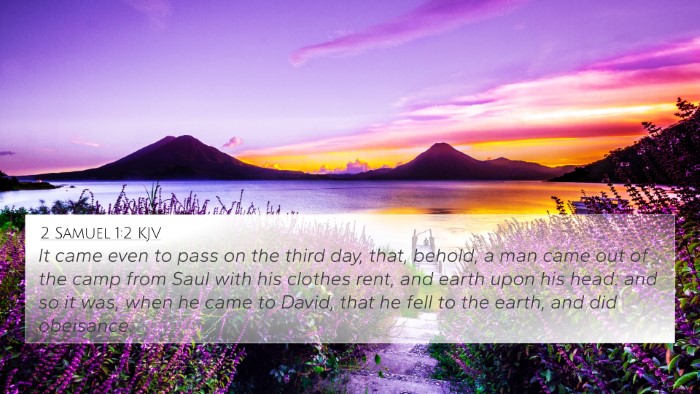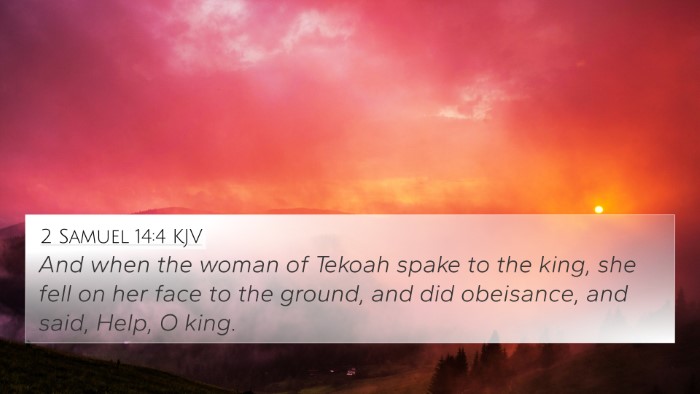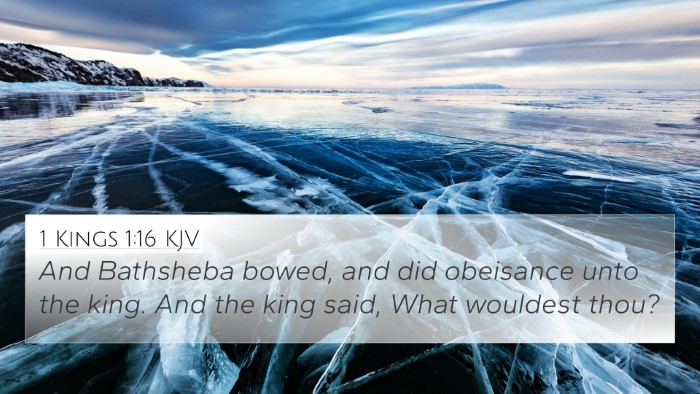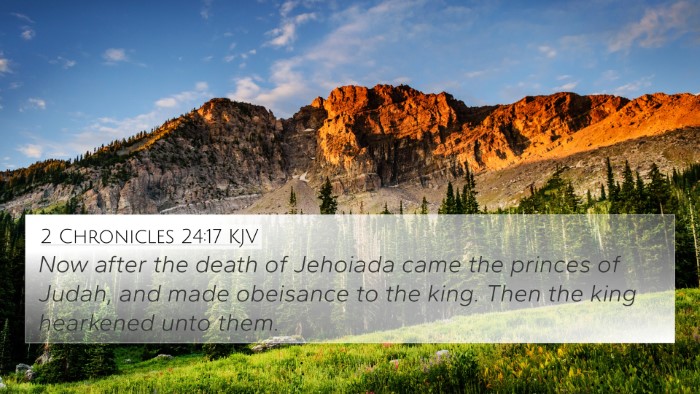Understanding Genesis 43:28
Genesis 43:28 states: "And they answered, Thy servant our father is in good health; he is yet alive. And they bowed down their heads, and made obeisance."
Summary of Genesis 43:28
This verse captures a significant moment when Joseph's brothers return to him in Egypt after being sent home during the famine. They affirm the wellbeing of their father, Jacob, demonstrating both respect and submission through their physical action of bowing down.
Interpretation from Public Domain Commentaries
-
Matthew Henry:
Matthew Henry notes that this moment highlights the restoration of the family dynamic. The brothers' declaration about their father's health serves as a means of reconciliation and conveys their deep respect for both their father and Joseph. It reflects a transition from their past guilt to a present where they acknowledge both their father’s wellbeing and Joseph’s authority.
-
Albert Barnes:
Albert Barnes points out that the act of bowing illustrates the fulfillment of Joseph's earlier dreams where his brothers would bow to him. This moment serves as a poignant reminder of the divine orchestration of events in their lives, demonstrating how God’s plans can manifest through human actions and familial dynamics.
-
Adam Clarke:
Adam Clarke emphasizes the cultural significance of this act of obeisance. In their culture, bowing was a sign of respect and subservience. The acknowledgment of their father's life adds an emotional depth to the narrative as it reflects their loyalty and commitment to family despite past betrayals.
Connections to Other Bible Verses
Genesis 43:28 can be cross-referenced with the following scriptures that highlight similar themes of family, reconciliation, respect, and divine providence:
- Genesis 37:7: Joseph’s dreams about his brothers bowing down to him.
- Genesis 50:18: The brothers’ later submission to Joseph after Jacob's death.
- Exodus 20:12: Honor your father and mother — reflecting the respect shown in the verse.
- 1 Samuel 20:41: Jonathan's bowing to David signifies loyalty and friendship.
- Hebrews 11:21: The act of reverence demonstrates faith in the promises of God.
- Philippians 2:10: Every knee shall bow in divine acknowledgment.
- Matthew 2:11: The Magi bowed to Jesus, signifying recognition of authority and divinity.
Thematic Connections and Analysis
This passage from Genesis not only establishes background for Joseph and his brothers but also aligns with broader Biblical themes:
-
Reconciliation: The journey from betrayal to acknowledgment showcases how God can heal relationships (e.g., Luke 15:20-24 - The Prodigal Son).
-
Divine Providence: God sets the stage for family reunification, reflecting on His sovereign hand throughout history (e.g., Romans 8:28).
-
Respect and Honor: The act of bowing underscores respect central to familial structures (e.g., Colossians 3:20 - Obey your parents).
Practical Application
For those studying the Bible, Genesis 43:28 serves as a reminder of the importance of family relationships, reconciliation, and respect. Understanding these themes can enhance your personal study and spiritual application through:
- Engaging in Bible cross-reference systems for deeper insights.
- Utilizing tools for Bible cross-referencing when preparing for sermons or discussions.
- Identifying thematic connections between verses to gain a comprehensive understanding of the scriptures.
Conclusion
Genesis 43:28 offers much to reflect on regarding family dynamics and the fulfillment of God's promises. The combined insights from various public domain commentaries reveal how respectful recognition and honest communication within families can lead to healing and reconciliation. As you continue your Bible study, remember the value of cross-referencing biblical texts for deeper understanding and application.
